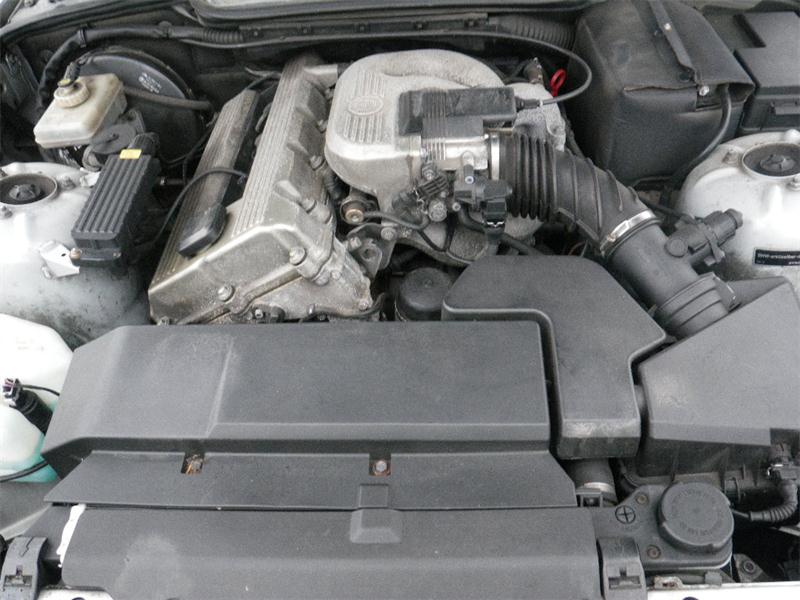BMW 318ti: Efficiency Specifications and Characteristics Explained
BMW 318ti: Efficiency Specifications and Characteristics Explained
Blog Article
Key Features to Search For When Investing In an Engine for Automotive Applications
When thinking about the purchase of an engine for vehicle applications, several crucial features call for careful examination to ensure ideal efficiency and performance. From power and efficiency capabilities to sustain performance, sturdiness, and adherence to discharges standards, each aspect plays a critical role in figuring out the engine's viability for specific automobile requirements.
Power and Efficiency
When selecting an automotive engine, buyers focus on power and efficiency to guarantee optimal driving experience and efficiency. A well-performing engine not just provides power efficiently but additionally operates smoothly throughout various speed arrays and driving problems.
Additionally, aspects such as engine displacement, turbocharging, and hybrid innovations play substantial roles in improving both power and efficiency degrees. Ultimately, choosing an engine that supplies a potent combination of power and performance makes certain a effective and enjoyable driving experience.
Fuel Efficiency
When reviewing auto engine options,Enhancing gas efficiency is an extremely important consideration for customers. The performance of an engine straight impacts operating costs and ecological footprint. One crucial aspect influencing fuel performance is the engine's style and modern technology. Modern engines with functions like straight fuel shot, turbocharging, and variable shutoff timing can substantially improve gas performance by improving burning procedures and decreasing energy loss. In addition, the total weight of the engine and automobile, along with the aerodynamics, play critical duties in identifying gas intake.

Toughness and Dependability
Attaining lasting efficiency and trustworthy operation is necessary for consumers reviewing the sturdiness and reliability of vehicle engines. When considering an engine for auto applications, durability refers to the engine's capacity to endure wear, stress and anxiety, and severe operating problems over an extended duration. Reliability, on the other hand, indicates that the engine can regularly execute its intended feature without unanticipated break downs or failings.
Consumers need to search for engines built with high-quality materials and exact engineering to make sure longevity. Components such as crankshafts, pistons, and bearings need to be durable to handle the engine's power outcome without early wear. In addition, engines equipped with advanced cooling systems, efficient lubrication, and durable purification devices often tend to exhibit higher levels of reliability.
Regular maintenance and adherence to producer suggestions are additionally crucial elements in protecting an engine's toughness and integrity. By adhering to upkeep timetables, making use of advised liquids, and resolving any kind of concerns without delay, customers can optimize the life expectancy and efficiency of their automobile engines. Eventually, prioritizing sturdiness and dependability in engine selection can lead to a more enjoyable possession experience with less unforeseen interruptions.
Emissions Compliance
Ensuring conformity with exhausts guidelines is an essential facet of assessing automobile engines for environmentally aware customers. With raising pop over here worries regarding air quality and ecological influence, stringent emissions standards have actually been implemented internationally to decrease hazardous toxins launched into the ambience. When buying an engine for automotive applications, it is essential to consider its exhausts compliance to decrease the carbon footprint and stick to lawful demands.
Modern engines are geared up with advanced discharge control innovations such as catalytic converters, exhaust gas recirculation (EGR) systems, and selective catalytic decrease (SCR) to lower dangerous exhaust gases like nitrogen oxides (NOx), carbon monoxide (CARBON MONOXIDE), and hydrocarbons (HC) These systems play an essential duty in guaranteeing that the engine fulfills the specified exhausts standards and runs within permissible restrictions.

Cost-effectiveness
When considering vehicle engine acquisitions, reviewing cost-effectiveness is critical for consumers looking for both efficiency and worth. Cost-effectiveness in engine acquisition includes greater than simply the initial acquisition rate. It encompasses the overall costs connected to upkeep, fuel consumption, and prospective fixings over the engine's lifespan. Choosing an engine that provides a balance in between long-lasting cost savings and ahead of time costs can lead to considerable advantages for the customer.
One trick facet of cost-effectiveness is fuel effectiveness. Engines that are developed to make best use of gas economic situation can cause considerable cost savings in time, particularly for individuals that drive regularly or over cross countries. Additionally, taking into consideration the availability and price of spare parts and maintenance can add to the overall cost-effectiveness of an engine. Ensuring that upkeep and repair services are sensible and accessible can avoid unanticipated monetary burdens down the line.

Verdict
To conclude, when acquiring an engine for automobile applications, it is vital to consider essential functions such as power and this article efficiency, gas reliability, resilience and effectiveness, discharges conformity, and cost-effectiveness. These variables are essential in ensuring that the engine meets the requirements of More Bonuses the car and operates efficiently in different driving conditions - bmw 318ti. Making an informed decision based on these criteria will ultimately lead to a reliable and effective auto engine purchase
From power and efficiency capacities to sustain durability, performance, and adherence to discharges standards, each facet plays an essential duty in figuring out the engine's suitability for specific auto demands. Engines designed to run on different gas such as electrical power, crossbreed systems, or biofuels can supply improved gas economic climate and reduced discharges contrasted to conventional fuel or diesel engines. Consumers need to carefully take into consideration the gas efficiency scores and technologies integrated into automobile engines to make educated investing in choices that align with their top priorities for cost financial savings and sustainability.
When thinking about an engine for auto applications, sturdiness refers to the engine's ability to stand up to wear, stress, and extreme operating conditions over a prolonged duration.In conclusion, when buying an engine for automotive applications, it is important to take into consideration essential functions such as power and efficiency, fuel reliability, sturdiness and performance, exhausts conformity, and cost-effectiveness.
Report this page